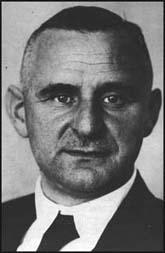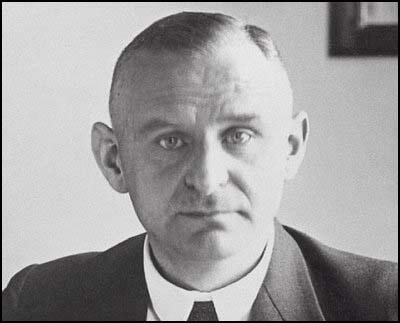Carl Goerdeler

Carl Goerdeler, the son of a Prussian district judge, was born in Schneidemuell on 31st July 1884. After studying law he became a local civil servant.
In 1930 Goerdeler became mayor of Leipzig. He also became price commissioner in the government of Heinrich Brüning and remained in office when Adolf Hitler came to power in 1933. Goerdeler resigned in 1934 after disagreement with Hitler over his policies.
Goerdeler publically opposed German rearmament and the Nuremberg Laws. As mayor of Leipzig he refused to pull down the statue of the Jewish composer Felix Mendelssohn or to fly the swastika flag over the city hall.
Goerdeler resigned as mayor of Leipzig in 1937 and spent the next two years travelling around Europe as overseas representative of the Bosche company. In 1938 he met Winston Churchill and other important political figures in Britain and France. Goerdeler provided information about Nazi Germany and encouraged governments not to make too many concessions to Hitler. He was appalled by the Munich Agreement which he saw as "out-and-out capitulation" and claimed that it would lead to a war in Europe.
During the Second World War Goerdeler advocated a negotiated peace with the Allies. However, he was deeply disappointed when his political contacts in Britain told him that the war would only come to an end if Germany unconditionally surrendered.

By 1940 Goerdeler had become convinced that only the German armed forces could overthrow Hitler. He made contact with Ludwig Beck but they were unable to find enough senior military leaders to take part in a coup.
In 1944 Goerdeler became involved in the July Plot and he agreed to become chancellor after Hitler's assassination. On 18th July, 1944, Goerdeler was warned that the Gestapo had discovered that he was involved in a conspiracy to kill Hitler. He went into hiding but was arrested the following month on 12th August. Carl Goerdeler was interrogated and tortured for five months before being executed on 2nd February, 1945.
Primary Sources
(1) Anthony Eden, Memoirs: The Reckoning (1965)
Dr. George Bell, Bishop of Chichester, had lectured in Sweden during May and June, 1942, under the auspices of the Ministry of Information. On his return the Bishop asked to see me, which he did on June 30th. He told me that two anti-Nazi German Protestant clergymen had come to Sweden to meet him. The Bishop left a memorandum with me reporting in detail what the German clerics proposed. This showed that the group they represented intended to overthrow the existing rulers, who were to be replaced by anti-Nazi members of the army and administration, former trade union leaders and churchmen. The Allies were invited to announce that, once Hitler was overthrown, they were prepared to negotiate with another Government. The names of General Ludwig Beck, Chief of Staff until 1938, Herr Karl Goerdeler, Mayor of Leipzig, and other notable figures were given as deeply involved in the movement.

